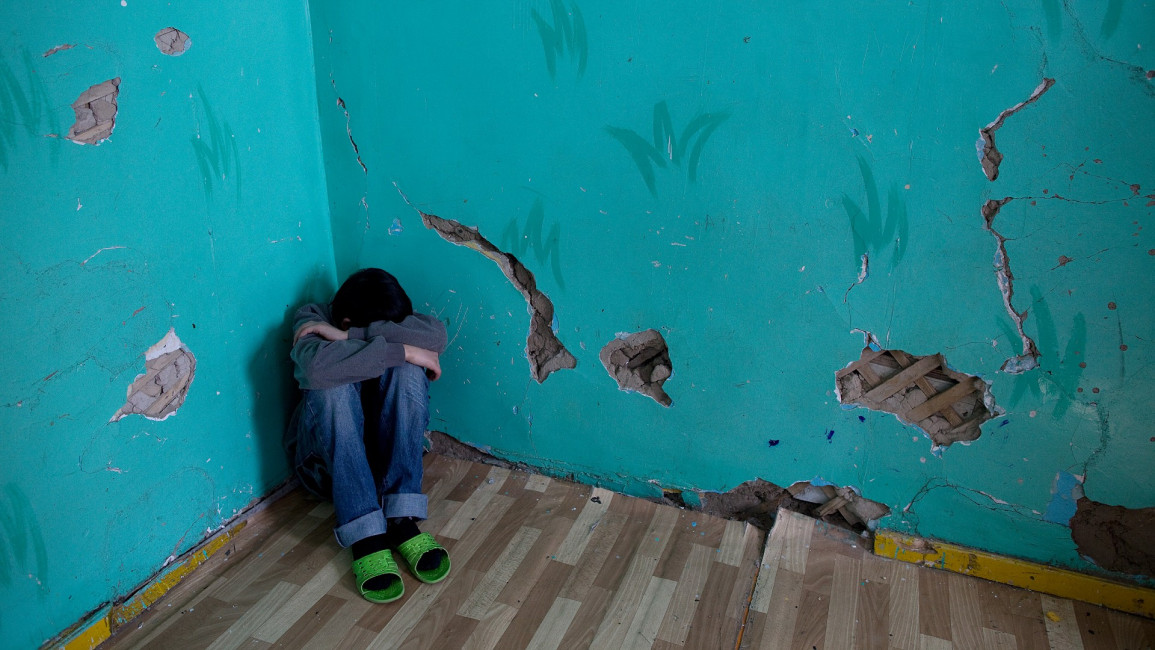Unregulated state-backed marriage loans in Iran 'exploiting vulnerable children'
The Iranian state is facilitating child marriages with easily available, unregulated loans that are being used by parents to marry off their children for financial gain, a watchdog has alleged.
State-owned Iran banks are offering loans to cover marriage expenses, with little or no oversight on how the money is spent, with some parents marrying off their children and pocketing the funds, the Center for Human Rights in Iran alleges.
This has resulted in a massive surge in child marriages in Iran, where it is legal for a girl aged over-13 and a boy over-15 to legally marry with the permission of a male guardian.
These loans come at a time when many Iranians are hit with poverty, exasperated by the coronavirus pandemic and economic sanctions. For this reason, applications for the loans are at a record high.
For children under the age of 18, the loan will not be given to them directly, but their parents.
This makes children vulnerable to financial abuse as the loans have created an opportunity for parents to marry-off their children for financial gain.
A Tehran-based children's rights lawyer who specialises in children's rights told CHRI that child marriages, previously a rural tradition, was now spreading to urban areas.
Read also: At least 30,000 girls forced into marriage in Iran every year, says minister
"Until now, child marriage was a phenomenon mostly seen in villages and small towns but now it has become a big problem among those living in the margins of the cities," the lawyer said on condition of anonymity.
|
||
He added: "Policies, such as increases in marriage loans, are only designed to encourage families to get husbands for their daughters at a young age, send them out of the house and make a financial gain. Many of these children don't even understand what marriage loans are.
"The damages caused by marriages between young girls and older men will appear years later. In fact, as child marriages increase, so do divorces at a young age."
The lawyer said in a recent divorce case he represented a 17-year-old girl who was forced to marry her father's 55-year-old friend at the age of 15.
"Evidence shows that the father received a marriage loan for his daughter but two years after he married her off, he and the husband were arrested for dealing drugs and sentenced to 20 years in prison," he said.
"It cannot be said for certain, but it's possible that the marriage loan was used as investment in drug trafficking and that could be why my client's father and husband are now in jail."
Lawyers and activists have urged the Islamic Republic to impose tougher regulations on loan system to prevent them from being used for the purpose of child marriage, but no action was taken.
In June, Sports and Youth Minister Masoud Soltanifar wrote a letter to President Hassan Rouhani saying: "Central Bank reports, as well as field surveys and media monitoring based on statistical analysis show that the number of marriage loans from applicants over the age of 60 and under of 15, which are out of the ordinary age of childbearing, is increasing.
"In view of the government's goal to facilitate timely marriage of young people, please order the cabinet and notify the Central Bank to set the age qualification for loan applicants from 18 to 40 years and grant loans only to those getting married for the first time."
In response, Rouhani ordered First Vice President Eshagh Jahangiri and the Plan and Budget Organisation to modify the rules.
In a statement from his office he wrote: "Immediately amend the bylaws or, if necessary, the law itself, or raise the matter at a meeting of the Economic Coordination Council, so that the age of applicants for marriage loans is between the ages of 18 to 40 years only."
However, no action by the Iranian government, or regulatory bodies was taken.
Forced underage marriage is a global problem and affects girls and boys across the world. Children who are compelled to marry often face physical, emotional and sexual abuse from their spouses, especially as many countries have not criminalised marital rape.
"Married girls and young women between the ages of 15 and 19 with low levels of education are at a much greater risk of domestic and sexual violence from their spouses than older and more educated women," a Human Rights Watch report said.
One of the UN Sustainable Development Goals adopted in September 2015 includes ending child marriage as a key target by 2030 for advancing gender equality.
Follow us on Facebook, Twitter and Instagram to stay connected


![Afghanistan floods [AFP] Afghanistan floods [AFP]](/sites/default/files/styles/image_330x185/public/media/images/0C0EC6AD-9E62-4D73-9148-11B37ECD5C46.jpg?h=d1cb525d&itok=2Qgw9O8Y)
